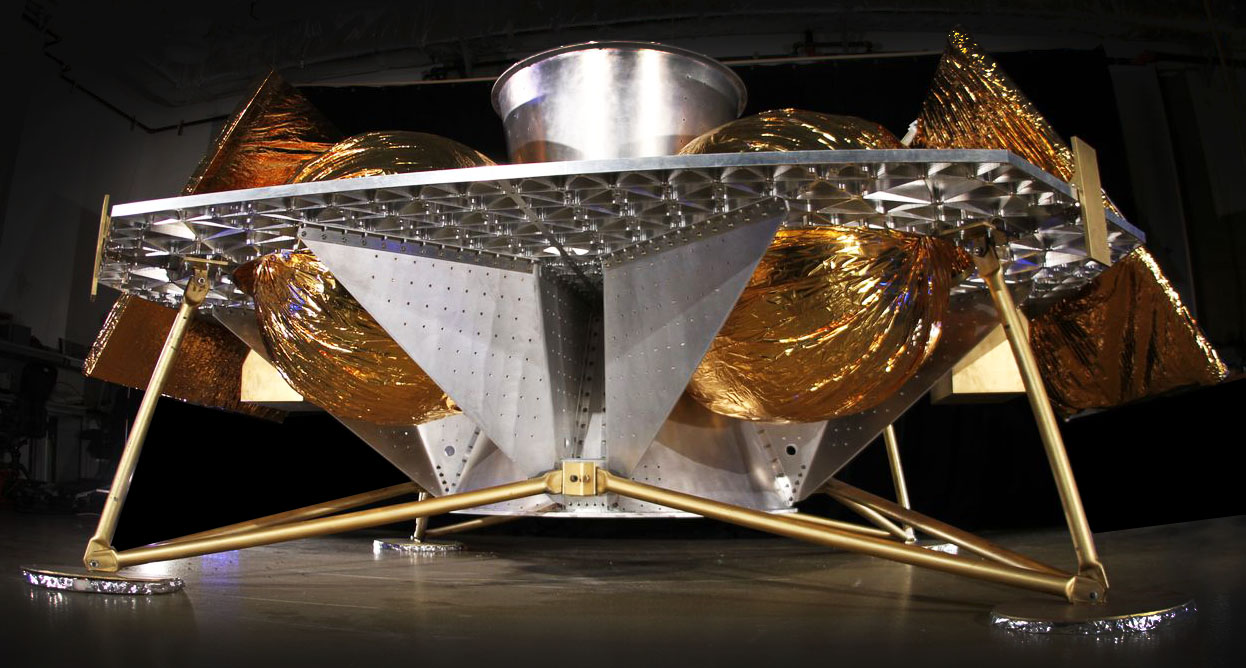NASA Chooses Astrobotic for Lunar Lander Initiative
Byron SpiceThursday, May 1, 2014Print this page.

Astrobotic Technology, a spinoff from Carnegie Mellon, has been selected as one of three companies that will partner with NASA to develop reliable and cost-effective lunar landing capabilities as part of the Lunar Cargo Transportation and Landing by Soft Touchdown (CATALYST) initiative.
Astrobotic, which is developing the Griffin lander for delivering its robots and other commercial payloads to the moon’s surface, and the other CATALYST companies will not receive NASA funding, but can negotiate an agreement to obtain access to NASA personnel, facilities and expertise.
"Moon landing once symbolized the pinnacle of human achievement,” said William “Red” Whittaker, professor of robotics and Astrobotic’s chairman. “CATALYST now evolves that to enterprise and to the remarkable capability that is possible through this public-private partnership. CATALYST will build a bright future combining a mix of new resourcefulness with legacy and innovation."
Commercial lunar transportation capabilities could support science and exploration objectives, such as sample returns, geophysical network deployment, resource prospecting, and technology demonstrations.
“This NASA partnership, modeled after the highly successful Commercial Orbital Transportation Services program, will extend the reach of commercial capabilities to the Moon,” said John Thornton, Astrobotic CEO. “Astrobotic is making it possible to buy lunar delivery and utility services at a fraction of the cost. Together with NASA, we will create a new era that makes space available to everyone.”
Astrobotic was selected by a panel of NASA experts based on its proposal to develop a commercially viable lunar cargo delivery capability. Proposals were judged on the achievability of lander development and performance, and likelihood of success.
Byron Spice | 412-268-9068 | bspice@cs.cmu.edu
